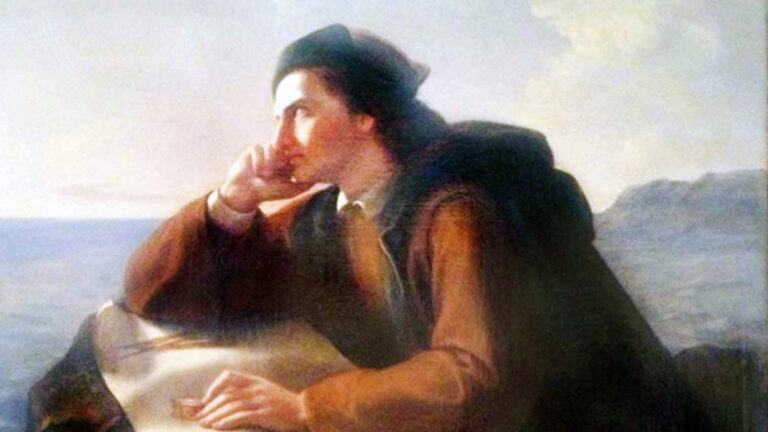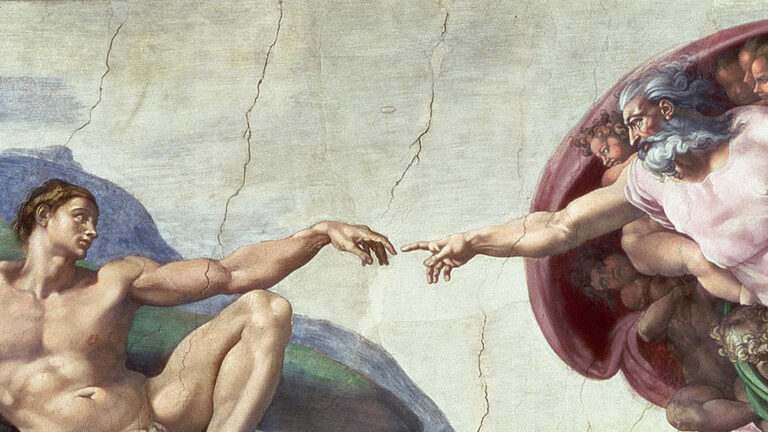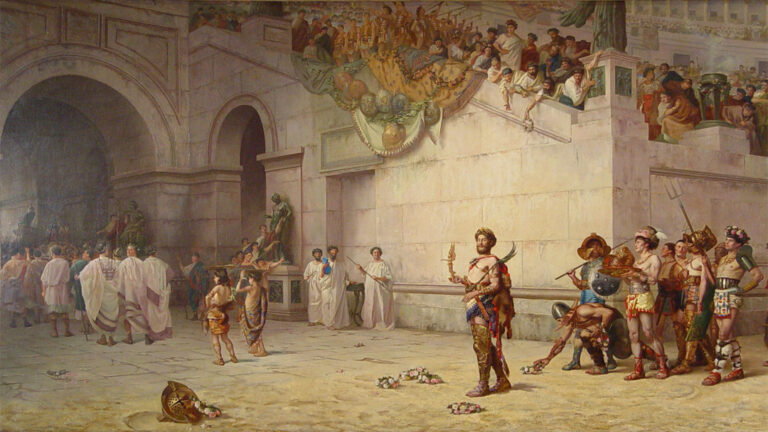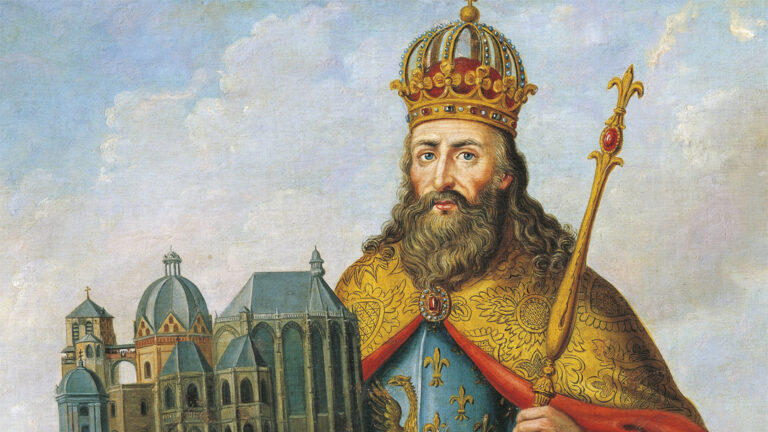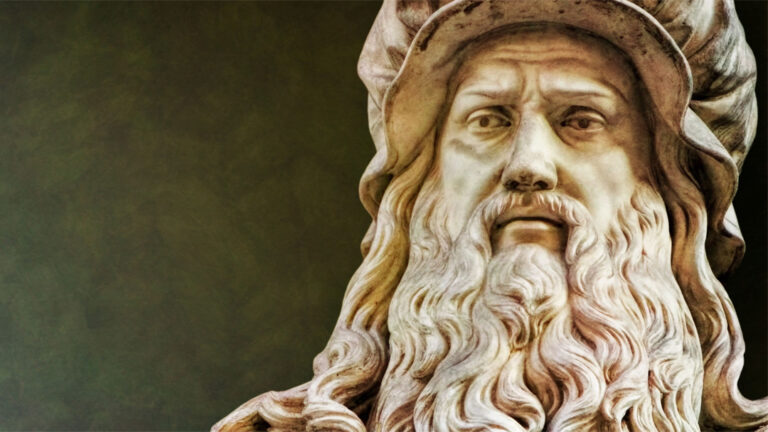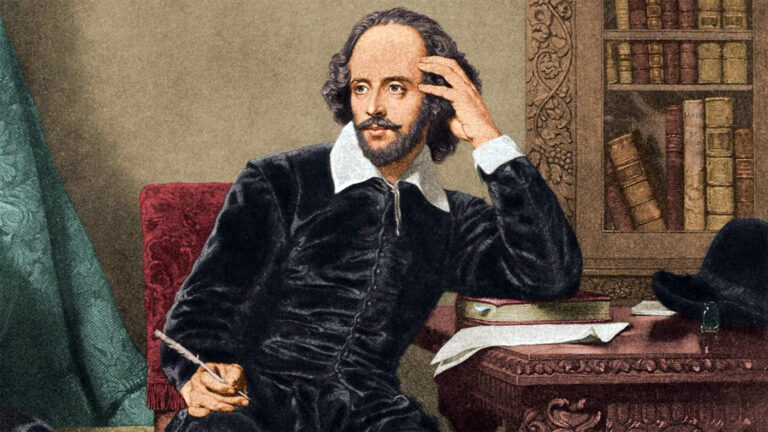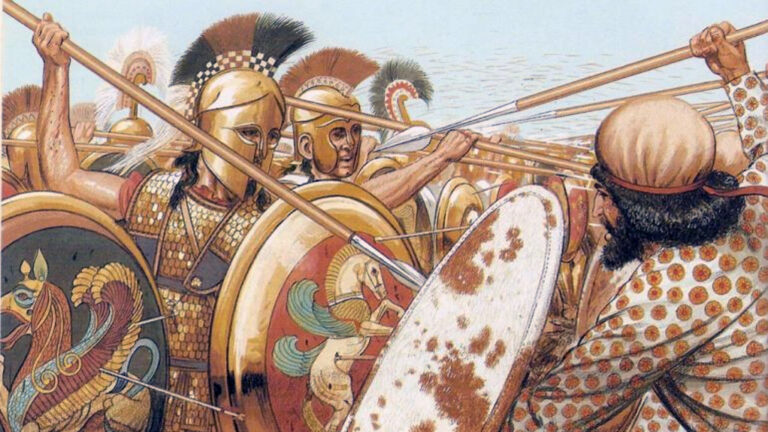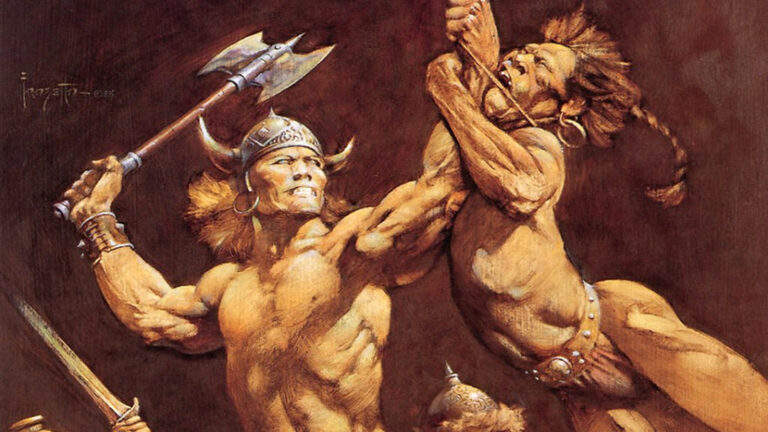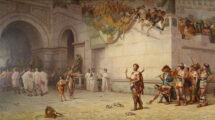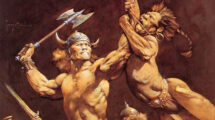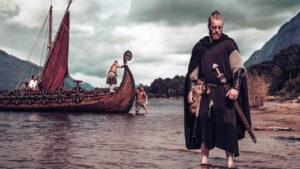The Decisive Battle of Marathon has, for millennia now, been firmly planted within the annals of western history. A decisive battle, a clash of cultures, the narrative describes an outnumbered Athenian army staving off the Persian invaders who would see the Greek civilization consumed within their empire. And as we gaze through the looking glass of time, thousands of years into the past, what began as a simple military engagement is now often considered a philosophical war between two cultures. The war for the West, that is what some believe Marathon to be. And if Greece is the cradle of western culture, could Marathon be the stance to defend it? (Battle Of Marathon)
Steward: We will now have a Moment of Silence for: __(decide locally)___. [about 20 second pause].
Music has long been an indispensable aspect of military forays. Brass instruments, flutes, and drums were used until recently to signal commands, and even decorated to look like terrifying animals. Marches were played to keep time and inspire higher morale. This Marche militaire francais was written in 1880 by Camille Saint-Saens, who was a French musical prodigy. Although it was composed for the concert hall, it preserves many of the characteristics of traditional marching music.
Audio Player
00:00
00:00
Use Up/Down Arrow keys to increase or decrease volume.
Steward: We will now have a discussion on the following topic:
Discussion: The Battle of Marathon and the Preservation of Democracy
For some time before the battle at Marathon in 490 BC, the Persian king Darius had been gaining control of Greek cities, which were allowed to operate “democratically” as long as Darius was recognized as their ultimate power. Athens and Sparta were the notable rebels who refused to accept his rule, and the battle on the plains near Marathon was fought to maintain the autonomy of Athens. While the victory at Marathon did indeed preserve Athens as a seat of democracy, the consequences went even further: the Greeks found that their invincible enemy could be routed (the Persians suffered 6,400 casualties to the Athenian 192) and were able to oust the Persians from Greece altogether in the coming years.
From 50 Battles that Changed the World: The Conflicts that Most Influenced the Course of History by William Weir:
Ethnic Persians and Sakas (Iranian nomads related to the Scythians) held the center of the Persian line. They fought desperately against the weakened Greek center, suffering appalling losses. The Greek spears were longer and their armor was heavier. The Persians actually climbed over the Greek shields to hack at the shield-bearers with axes and daggers. The Greek center bent back.
Meanwhile, the Greek wings, eight ranks deep instead of four, continued to advance. As the Greek line bowed in the center, the wings turned inward. The Persians were caught in a double envelopment, crowded into a dense mass where their bows were useless. The Persians turned and fled back to their ships.”
- Why do you think Athens and Sparta were not willing to accept the rule of Darius, even though it was mostly nominal and they would still be able to run their cities democratically (or however they chose)?
a. Where does this situation occur in our own civilization?
b. What does it matter who has power if they grant autonomy to their subjects? - Why is democracy essential to a free society?
- Many lies are promulgated nowadays under the pretense that they are democratic or essential to democracy. What are some of those lies?
a. How can we counteract them?
b. What are some things that truly are essential to democracy? - How can we maintain and fight for democracy in our own lives?
- What motivates us to protect and fight for democracy?
- Why is it important to remember those who established democracy? Those who died to preserve it?
a. How can we remember and honor them and their accomplishments?
b. What can we do to follow in their footsteps?
Congregant: Closing words of inspiration.
According to legend, an Athenian messenger was sent from Marathon to Athens, a distance of about 25 miles (40 km), and there he announced the Persian defeat before dying of exhaustion. This tale became the basis for the modern marathon race. See: Battle of Marathon
So, to this day, when friend meets friend, the word of salute
Is still “Rejoice!”—his word which brought rejoicing indeed.
So is Pheidippides happy forever,—the noble strong man
Who could race like a God, bear the face of a God, whom a God loved so well;
He saw the land saved he had helped to save, and was suffered to tell
Such tidings, yet never decline, but, gloriously as he began,
So to end gloriously—once to shout, thereafter be mute:
“Athens is saved!”—Pheidippides dies in the shout for his message.
(Robert Browning, Pheidippides, final stanza)
Extend an invitation/commitment to apply one thing learned this week.
Steward: Take contributions from group made payable to Ethical Overlay. [Take cash, checks, or commitments to pay online].
